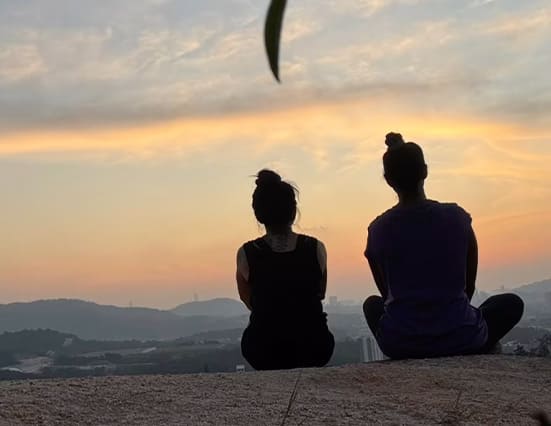We often think of misogyny as something “out there”—in patriarchal systems, in harmful comments, in toxic work cultures. But what happens when it’s in here?
What happens when the voice that tells you you’re too loud, too emotional, too ambitious… is your own?
What happens when you realize that the fear of being “too much” or “not enough” didn’t come from your soul—but from centuries of conditioning?
This is internalized misogyny.
And it’s one of the most silent, shape-shifting forms of self-betrayal.
What Is Internalized Misogyny?
Internalized misogyny is when we, as women, unconsciously absorb and act out sexist beliefs about ourselves and other women.
It shows up in ways we often don’t even notice:
- Dismissing other women as “too much” or “too dramatic”
- Feeling threatened by another woman’s success
- Judging your body more harshly than anyone else would
- Believing that being soft is weak, or being strong is unlovable
- Silencing your truth to avoid being “difficult”
It’s subtle. It’s sneaky. And it thrives in silence.
But the moment we see it, we can begin to reclaim ourselves.
🖤 Journal With Me: Uncovering Internalized Misogyny
If you’re ready to take an honest, compassionate look at the stories you’ve inherited, these questions are your invitation.
Take a breath. Create a sacred space. And write without censoring yourself.
1. Where did I learn that being a woman came with limits?
Think about the messages you received growing up—through family, religion, media, school.
✍🏽 What were you told (directly or indirectly) about being a “good girl” or a “proper woman”?
2. Do I find myself judging other women?
Notice who triggers you and why.
✍🏽 What does her confidence, beauty, voice, freedom, or softness awaken in me? Jealousy? Inspiration? Shame?
3. In what ways have I silenced, shrunk, or shaped myself to be more “acceptable”?
Think of times you dimmed your light in relationships, at work, or with family.
✍🏽 What was I afraid would happen if I showed up fully as myself?
4. What do I believe about softness, vulnerability, or emotional expression?
Do you equate softness with weakness?
✍🏽 Where did I learn that showing emotions makes me less capable, respected, or lovable?
5. What have I been taught about other women?
Sometimes we internalize competition or distrust.
✍🏽 Do I feel safe with women? Do I celebrate them or compare myself?
6. How has internalized misogyny shaped my relationship with my body?
✍🏽 Have I punished, ignored, or criticized my body more than I’ve thanked it? Why?
7. What part of me have I disowned because I was told it was “too much”?
✍🏽 What would it look like to reclaim that part? What would she say if I let her speak?
8. Who am I when I stop trying to be likable, perfect, or “good”?
✍🏽 What kind of woman emerges when I give myself full permission to just be?
9. How can I begin to rewrite the narrative?
✍🏽 What would self-love, sisterhood, and feminine power look like if I rooted them in freedom instead of fear?
🌹 This Is The Work
This work isn’t about blame—it’s about awareness.
It’s not about being perfect—it’s about being free.
Free to be fully you. Free to rise with other women. Free to unlearn, reclaim, and rebirth the kind of world we deserve.
You’re not broken.
You’re awakening.
And your healing… heals generations.
With love,
Kriska
Co-Founder, RiZe Academy



